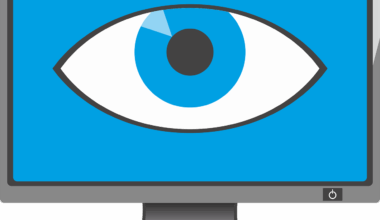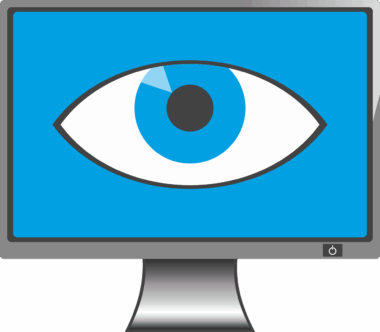The Ethics of Monitoring Employee Online Activity
Monitoring employee online activities raises significant ethical considerations for organizations. At the core of these discussions is striking a balance between an employer’s interest in protecting business assets and a worker’s right to privacy. While it is crucial to ensure that sensitive data is safeguarded, companies must navigate the murky waters of ethical practice by being transparent. Employees should be informed about the extent and nature of the monitoring that will occur. Moreover, establishing a trust-based culture can contribute positively to productivity and morale. It is essential to create clear policies that outline what is monitored, why it is monitored, and the consequences of misuse. These policies should be thoroughly communicated and accessible to all workers to promote understanding and clarity. Furthermore, the legal frameworks governing employee monitoring must be adhered to, ensuring that practices are compliant with relevant laws. Ethical considerations also extend to the potential psychological impacts on employees, including feelings of distrust and paranoia. Thus, the manner in which monitoring is implemented is as crucial as the act itself, making it imperative for organizations to approach this issue thoughtfully and judiciously.
In addition to policy clarity, another critical aspect of ethical employee monitoring pertains to the overall purpose behind such initiatives. Organizations must ask whether monitoring is implemented for preventative measures or punitive actions. Preventative monitoring aims to establish a safe, secure work environment that fosters trust while protecting company assets from potential threats. Conversely, punitive monitoring often leads to a climate of fear, reducing morale and potentially sparking higher turnover rates. There has to be a careful articulation of the intentions behind employee surveillance practices, ensuring that they align with the organization’s mission and values. Ethical guidelines can help shape a monitoring approach that prioritizes worker dignity over intrusive practices. Implementing support systems like employee counseling can also help mitigate tensions resulting from monitoring. Furthermore, the organization must be mindful of the human backlash that may stem from surveillance. By focusing on transparency and constructive communication, firms can significantly diminish negative sentiment toward monitoring practices, fostering a healthier workplace. Hence, understanding employee perspectives regarding monitoring is essential to critically assess how ethical considerations are integrated into such practices.
Legal Implications of Employee Monitoring
Legal implications also play a vital role in shaping how organizations should approach employee monitoring ethically. Compliance with labor laws and privacy regulations is crucial; failure to do so can result in serious legal repercussions. In many jurisdictions, employees must be informed of any monitoring practices, alongside the rationale behind them to avoid potential legal challenges. Failing to provide adequate notice to employees can render monitoring practices legally questionable. Employers need to assess their local laws meticulously and ensure that their monitoring strategies reflect these legal requirements. Alongside legal compliance, ethical considerations must remain at the forefront of monitoring practices. By prioritizing ethical dimensions, organizations can help avert legal disputes and promote a culture of respect within the workplace. Moreover, organizations should engage legal and HR counsel in formulating their monitoring policies to remain on solid legal ground. This collaboration can assist organizations in understanding both preventive measures and employee rights effectively. Ultimately, addressing legal implications encountered during monitoring not only provides protection against potential lawsuits but also underscores an organization’s commitment to ethical best practices.
Best practices related to ethical employee monitoring encourage organizations to adopt a transparent communication strategy. Sharing the intention behind the monitoring can help mitigate concerns employees may have regarding privacy invasions. This strategy includes proactively informing all staff of what data will be collected, how it will be used, and how long it will be retained. Engaging employees during the policy drafting process can be beneficial, fostering an environment where feedback is welcomed. Additionally, organizations ought to conduct occasional assessments of their monitoring practices to evaluate their effectiveness continuously. Evaluations should consider both the necessity of the monitoring measures in place and the possible impact on employee wellbeing. These practices should also involve regular updates to policies to reflect changes in technology or workforce expectations. Training sessions can further enhance understanding and compliance around monitoring policies within the workforce, and clear avenues for grievances should be established to give employees a voice. Fostering an environment of respect, dignity, and open communication is paramount to maintaining a positive company culture while implementing necessary monitoring.
Impact of Technology on Ethical Monitoring
The constant evolution of technology presents both challenges and opportunities for ethical employee monitoring. On the one hand, advancements in surveillance tools can enhance security and performance tracking. Employing advanced monitoring software enables organizations to gain insights into efficiency and engagement. On the other hand, these same tools can lead to pervasive oversight, potentially crossing ethical boundaries. Organizations must reconsider what is acceptable regarding online monitoring as technology evolves rapidly. Policies that were appropriate five years ago may already feel outdated. For instance, while monitoring social media activity might have once seemed unnecessary, the rise of social media’s influence on public perception has changed this perspective. Companies need to assess risks associated with monitoring online interactions by involving stakeholders, ensuring that collected data is utilized ethically. Furthermore, it’s pivotal that firms do not become overly invasive, leading employees to feel uncomfortable or pressured by constant surveillance. Regularly reviewing how technology is deployed for monitoring can foster a more ethically responsible approach, aligning practices with both technological capabilities and employees’ rights to privacy.
Addressing the intersection of monitoring, ethics, and productivity is essential for today’s organizations striving for success. Ethical employee monitoring should not aim purely for control or concern over productivity, but rather to support employees in achieving their best potential. For meaningful applications, organizations must introduce monitoring practices that actively engage workers through feedback mechanisms. By including employees in these conversations, organizations demonstrate a commitment to shared responsibility when monitoring their performance. This cooperative approach not only cultivates a sense of partnership but also enhances job satisfaction. Transparency surrounding monitoring tools is key in creating this environment, allowing employees to see monitoring as a support system rather than punitive actions. Moreover, providing additional resources such as training or workshops can enhance the efficacy of monitoring efforts. Training employees on how to improve their productivity based on monitoring data creates a symbiotic relationship. Ultimately, ethical considerations surrounding monitoring should serve as a foundation for practices that boost engagement and performance, resulting in a more harmonious workplace. By aligning organizational goals with employee welfare, businesses can create a workplace atmosphere that motivates and respects.
Conclusion
In conclusion, the ethics of monitoring employee online activity is a multifaceted issue that demands careful navigation by organizations. Striking a balance between protecting company interests and respecting employee privacy is paramount. Through clear policies, transparent communication, and regular assessments, businesses can create monitoring practices rooted in ethical principles. Legal compliance enhances ethical considerations, shielding companies from potential repercussions while promoting trust. As technology evolves, ethical monitoring practices must adapt, reflecting the current landscape while ensuring employee rights are respected. A culture of collaboration where employees are not just monitored but engaged provides a foundation for thoughtful oversight. Ultimately, organizations must prioritize the well-being of employees alongside the need for security and productivity. By doing so, they foster an environment of mutual respect, allowing for streamlined operations and enhanced employee engagement. Moving forward, businesses should not only focus on what can be monitored but also how monitoring practices impact employees’ perceptions and mental well-being. This ethical approach will serve as the benchmark for successful employee monitoring strategies, leading to a healthier workplace dynamic and improved organizational outcomes.
Furthermore, ongoing dialogue between management and staff is crucial to continuously refine monitoring policies based on feedback. Employee advocacy can contribute significantly to maintaining ethical standards, ensuring that monitoring does not become an invasive practice. Organizations should embrace feedback mechanisms to gauge employee sentiment toward monitoring and make necessary adjustments. By taking the pulse of employee sentiment, companies may identify gaps or concerns that need to be addressed. Promoting a culture of advocacy empowers employees to express their opinions, ultimately leading to a more respectful integration of monitoring practices. As trends in monitoring continue to evolve, organizations must prioritize fostering an ethical climate that champions employee rights. Transparency should evolve with technological advancements, ensuring that monitoring practices reflect a commitment to ethical principles. In conclusion, monitoring employee online activity is not inherently negative; instead, it provides opportunities for growth when approached ethically. Organizations that prioritize ethical standards in monitoring practices will see benefits in employee satisfaction, performance, and overall workplace culture. By recognizing the broader implications of employee monitoring, firms can establish a supportive environment where both security and personal agency coexist harmoniously.





